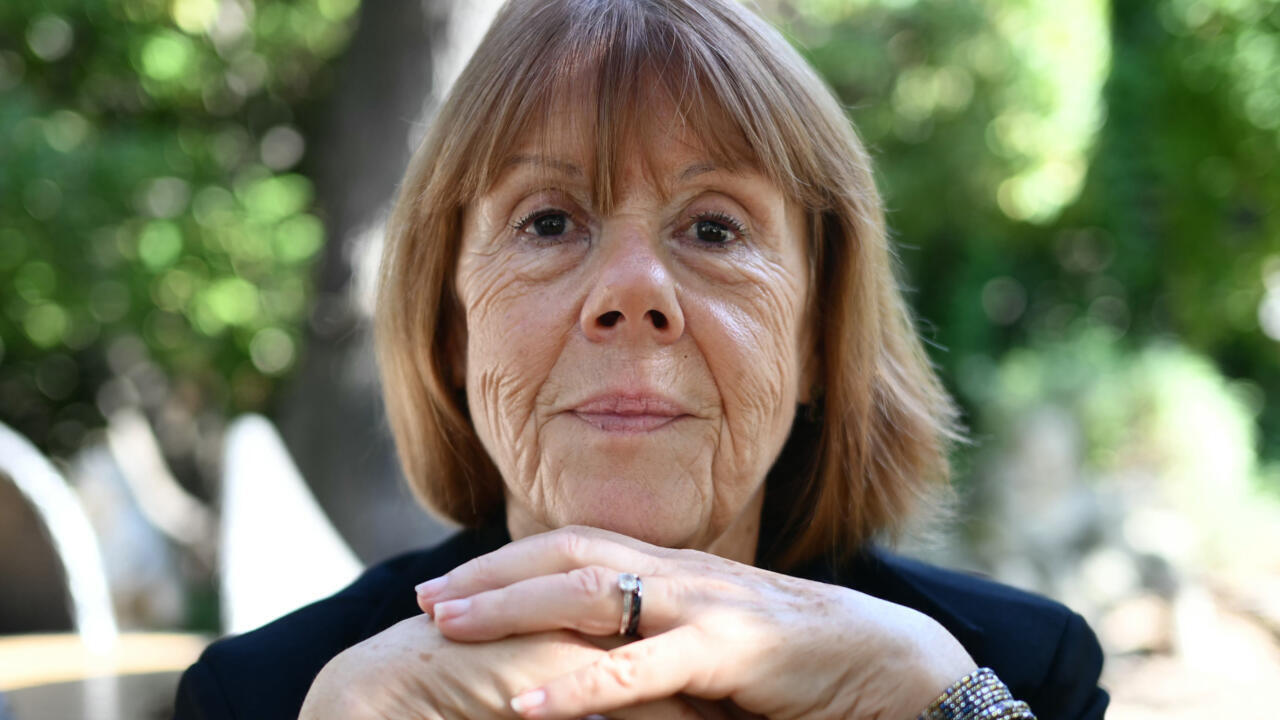The Trial That Exposed Society’s Darkest Truths
In a small courtroom in Avignon, where justice often feels like an abstract concept, one woman, Gisèle Pelicot, stood unshaken against a wall of darkness. Fifty defendants, their faces etched with denial, shame, and arrogance, made their final statements. Fifty men who had lived among us as normal members of society – fathers, husbands, professionals. A fireman sworn to save lives. A paramedic trusted to heal the wounded. A nurse tasked with care and compassion. These were men we relied on, men who held children in their arms and shared in the duties of their communities. And yet, in the most horrific betrayal of trust, they had acted as predators, perpetrators of unforgivable violence.
As Gisèle Pelicot sat through their final words, a haunting juxtaposition emerged. Some men whispered their apologies, though their words were hollow against the magnitude of their crimes. Others proclaimed their innocence, clinging to denial with desperate hands. A few simply had “nothing to add,” as though the weight of their deeds rendered them incapable of speech. But Gisèle, the woman at the centre of this trial, had already rendered them small and voiceless in comparison to her quiet and unyielding courage.
What Gisèle Pelicot did was nothing short of revolutionary. In taking the stand against fifty men, fifty who tried to diminish her truth, fifty who once held power in her life, she shattered the mould of how rape cases have traditionally unfolded. She refused to shoulder the shame so often forced onto victims. Instead, she took that burden and handed it back, where it had always belonged – to the perpetrators. She did so with a conviction that has changed the conversation surrounding sexual violence forever.
Fifty men who had lived among us as normal members of society – fathers, husbands, professionals.
For too long, society has been complicit in turning a blind eye. It has been easier to deny, to question the victim, to find ways to excuse the inexcusable. But the Pelicot trial holds up a mirror to the worst parts of humanity. It forces us to confront the fact that these men, who laughed with their children, attended family barbecues, and wore the uniforms of heroes, were capable of unimaginable cruelty. They were not nameless monsters hiding in the shadows. They were men embedded in society, men we trusted, men we relied upon. And that is the hardest truth to swallow.
But harder still is what Gisèle Pelicot endured to get here. Three and a half months of hearings. Sixty-four days in court. Fifty faces to confront – one by one, name by name. Imagine the toll of that. Imagine the strength it takes to hold your ground against an entire chorus of denial, to stare into the eyes of those who tried to break you and refuse to be silent. Gisèle’s bravery is the kind that ripples outward, touching the lives of survivors everywhere, giving them permission to reclaim their own stories, to speak their truths without shame.
When the defendants were given their final chance to speak, the scene that unfolded was a farce of accountability. One man shuffled papers as though he could rewrite the narrative. Others weaponised hollow words of regret, seeking pity where none was deserved. One after another, they failed to grasp the enormity of what they had done. They remained small, their excuses meaningless. And in that moment, Gisèle stood taller than all of them combined.
It is difficult, almost unbearable, to think of these men as members of our society. To think that a firefighter who runs toward danger to save others could be a man capable of such violence. That a paramedic, whose hands are meant to heal, could wield such harm. These are men who represented stability, care, and trust – values they shattered through their actions. It is sickening to acknowledge how easily they slipped between their dual lives, perpetrators of heinous crimes by night and respectable family men by day. They hid behind their uniforms, behind their roles as fathers, colleagues, and neighbours. But in the Pelicot trial, their masks have been torn away.
The judges will deliver their verdict soon, but Gisèle Pelicot’s legacy is already written. She has reshaped the way we look at cases like hers. She has forced society to confront its complicity in silence, its habit of doubting survivors while granting perpetrators the benefit of the doubt. Most importantly, she has given survivors a powerful example of how to resist shame – to refuse it, to send it back.
Gisèle Pelicot is more than just one voice against fifty. She is a voice for the countless others who never got their day in court. She is a woman who has proven that the truth can stand strong even when surrounded by denial, lies, and cowardice. Her bravery is a light in the darkest of places. And it reminds us all that justice, though slow and imperfect, is worth fighting for.
As we await the verdict, one thing is certain, the shame belongs to the perpetrators. The shame belongs to the fifty men who will forever carry the weight of their crimes, whether they admit it or not. And Gisèle Pelicot, with her unshakable courage, has ensured that the world will remember where that shame truly lies.
Subscribe to The FEMCAST and help us bring these critical stories to light. Each listener, each voice, and each story makes a difference. Together, we can break the silence.
If you enjoy my content and would like to support our research and work, consider buying me a coffee (by clicking links below). Your contribution helps me continue creating this content. Thank you for your support!








